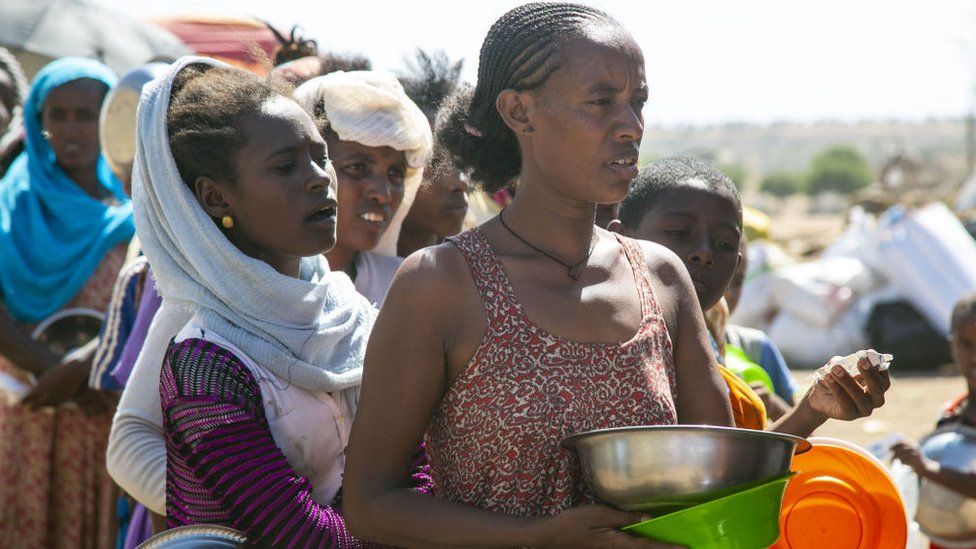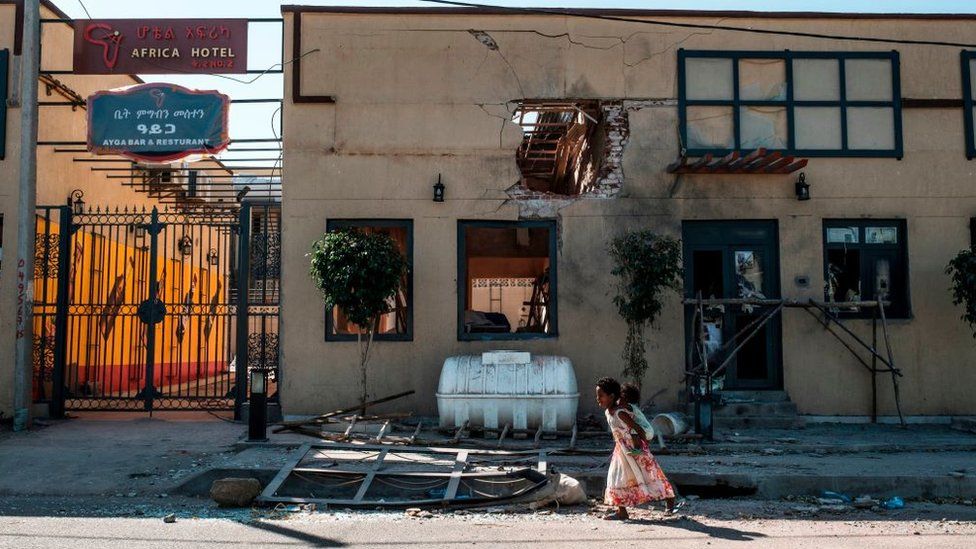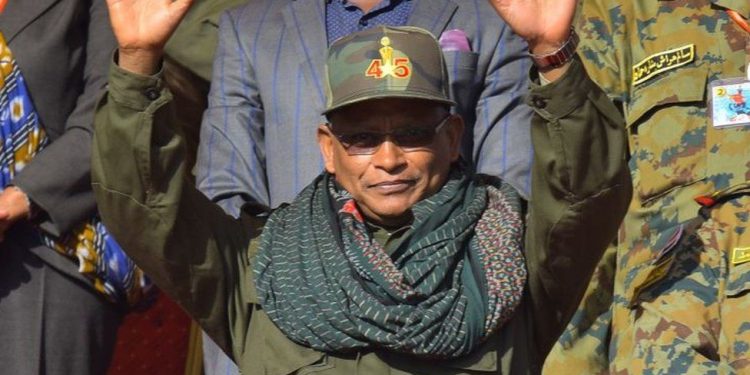Ethiopian and Eritrean forces have waged a “devastating and genocidal war” in Ethiopia’s Tigray region, the region’s ousted leader has said.
Debretsion Gebremichael urged the international community to investigate the alleged atrocities.
The Ethiopian government said his claims were “unfounded”, and his forces were guilty of “horrendous crimes”.
Conflict broke out in November after Mr Debretsion’s forces captured Ethiopian government military bases in Tigray.
Ethiopia’s Prime Minister Abiy responded by ordering a ground and air offensive, which led to his troops capturing the regional capital, Mekelle, on 28 November
Mr Debretsion fled the capital with fighters from his Tigray People’s Liberation Front (TPLF), and vowed to resist federal control over the region.
The conflict has led to about two million people, or a third of Tigray’s population, being displaced.
What exactly did the TPLF leader say?
This was the first time in more than two months that Mr Debretsion had spoken in public. An audio recording of his comments, lasting for about 20 minutes, was broadcast on a Facebook account run by a TPLF media outlet.
“A devastating and genocidal war was waged against the people of Tigray because they firmly fought for their right to self-determination and they held a democratic election. The invasion and massacre has continued. So does the struggle of the people of Tigray,” he said.
Mr Debretsion also alleged widespread incidents of murder, rape, torture and starvation.
It is unclear when the recording was made but he mentioned the killings of other TPLF leaders, which suggested it was recent.
Mr Debretsion is wanted by the government on charges of treason.

The authorities in Ethiopia announced earlier this month that several senior TPLF members, including Ethiopia’s former Foreign Minster Seyoum Mesfin, had been killed in the conflict.
Mr Debretsion said the TPLF had suffered setbacks because “four governments” were fighting against it in Tigray.
“Abiy Ahmed invited forces, including the Eritrean army, and they are massacring the people of Tigray.
“The atrocities should be investigated and all legal actions should be taken against the invading forces,” he said.
The Eritrean and Ethiopian governments have previously denied that Eritrean troops are involved in the conflict.
But the US state department said last week that Eritrean troops were in Tigray, and they should immediately withdraw.
“Credible reports” had emerged of their involvement in human rights abuses, including sexual violence and looting, the state department said.
Mr Debretsion did not name the other countries allegedly involved in the conflict. Somalia has previously denied that its troops have been fighting alongside Ethiopian forces in Tigray.
The TPLF had also previously alleged that drones from the United Arab Emirates (UAE) were being used to strike at its forces, but Ethiopia denied that the Gulf state was involved in the conflict.
What has been the government’s reaction to the genocide claims?
A spokeswoman for Mr Abiy, Billene Seyoum, told the BBC that she could not “speak to the delusions of a criminal clique’s Facebook page”.
“With regards to the rule of law operations, the criminal clique and their international proxies have been attempting to divert international attention by [making] unfounded claims of genocide as early as November to cover up the TPLF’s horrendous crimes,” Billene Seyoum said.
The international community and media needed to support the government’s efforts to bring the TPLF to justice “instead of covering up for them”, she added.

How bad is the conflict?
It has been difficult to verify information about alleged atrocities because of media restrictions and a communication blackout in areas hit by conflict in the mountainous region.
However, aid agencies and rights bodies have reported the killing of civilians, as well as widespread damage and looting of homes, businesses, hospitals and food stores.
A government official, quoted in a leaked copy of notes taken at a meeting of humanitarian workers, said that “hundreds of thousands might starve to death”, and that some people had already died.
The government has said it is doing its best to deliver food to people.
What is the background to the conflict?

Apart from ruling in Tigray, the TPLF had been the dominant party in a coalition government at federal level until Mr Abiy took office in 2018, following mass protests against its authoritarian rule.
The party held elections in Tigray last September, in defiance of a decision at federal level to postpone all polls because of the coronavirus outbreak.
Mr Abiy then accused the TPLF of being illegally in power, while it accused him of leading an “illegitimate” government that no longer had a mandate to govern.
Tensions boiled over, and fighting broke out in early November.







